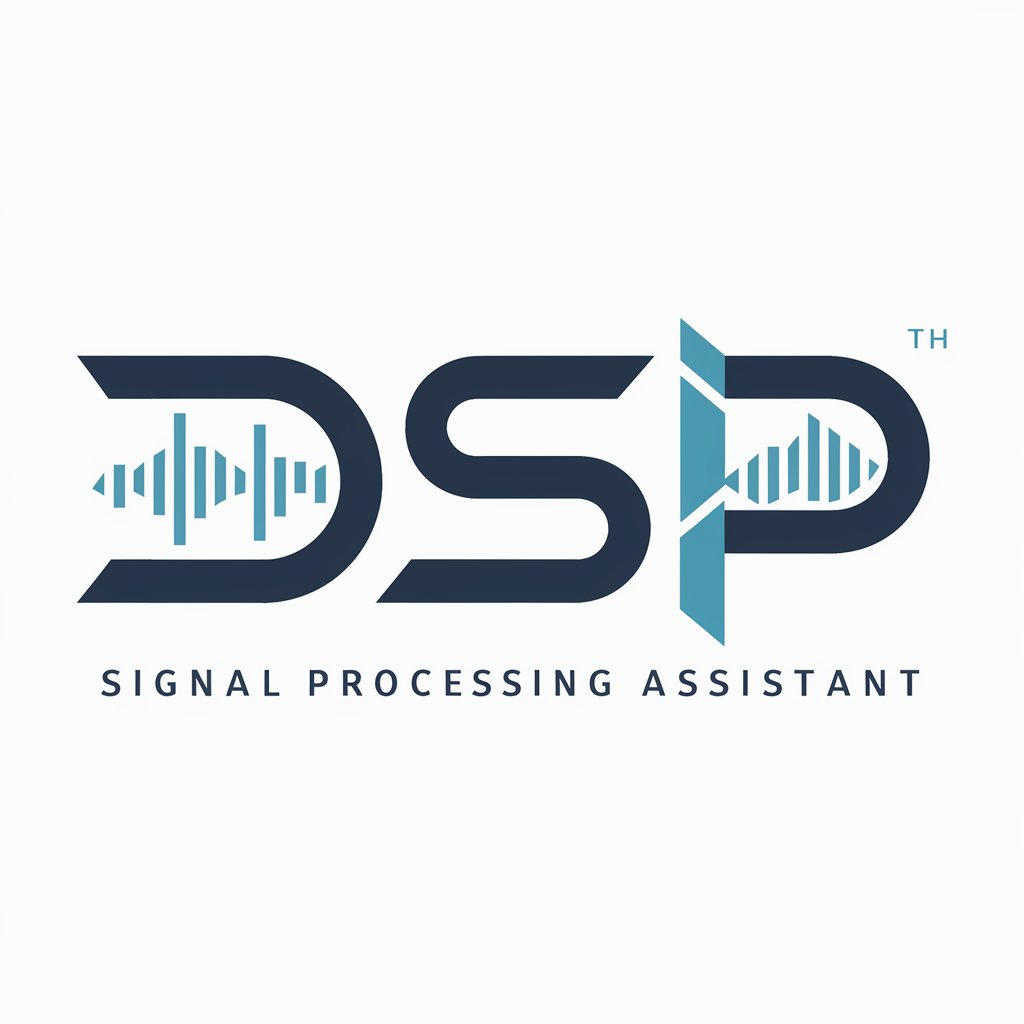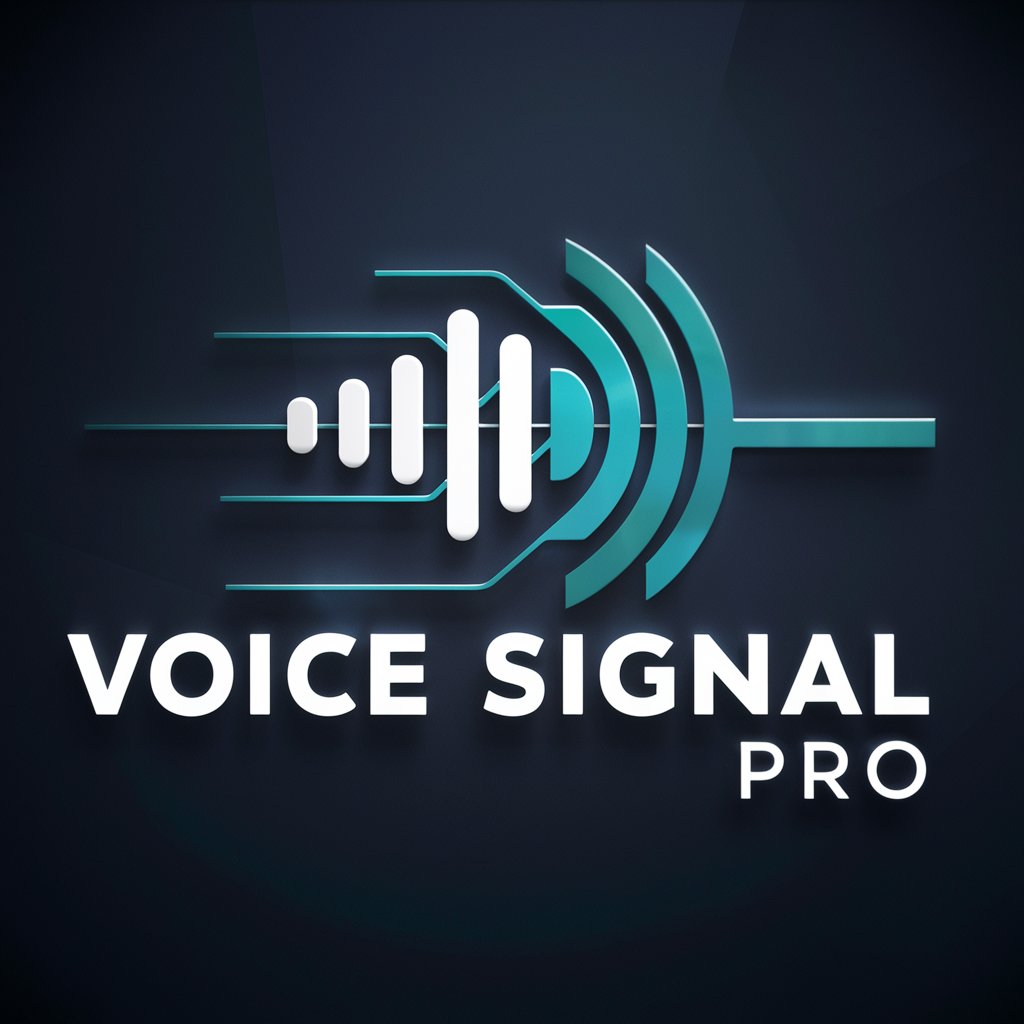14 GPTs for Noise Reduction Powered by AI for Free of 2025
AI GPTs for Noise Reduction are advanced generative pre-trained transformer models specifically designed to mitigate unwanted signals and disturbances in various datasets and communications. These tools leverage deep learning algorithms to identify, filter out, or reduce noise, enhancing the quality and clarity of the data. By training on vast amounts of noisy and clean data, these GPTs learn to distinguish between signal and noise, making them invaluable in fields where data purity is critical. Their relevance spans across audio processing, image enhancement, data analysis, and more, providing tailored solutions that improve signal integrity.
Top 10 GPTs for Noise Reduction are: Audacity Audio Assistant,MixerBox PhotoMagic,Image Enhancer,DSP,Photo & Image Enhancer by MAGUS,Acoustic Advisor,Old Photo Wizard,Digital Filter Assistant,Voice Signal Pro,SoundScape Architect
Audacity Audio Assistant
Empower your audio editing with AI

MixerBox PhotoMagic
Revitalize Your Images with AI

Image Enhancer
Elevate Your Images with AI

DSP
Empowering Signal Processing with AI

Photo & Image Enhancer by MAGUS
Revitalize your images with AI magic

Acoustic Advisor
Enhancing Your Sound Experience with AI

Old Photo Wizard
Restore Memories with AI-Powered Precision

Digital Filter Assistant
Refining signals with AI-powered precision

Voice Signal Pro
Empowering Sound with AI

SoundScape Architect
Optimizing acoustics with AI innovation

Landscape Photo Enhancer
Elevate Your Landscapes with AI

Image Enhancement Advisor
Elevate your images with AI magic

Photo Enhancer
Enhance Images Instantly with AI

ClearView Assistant
Enhance Videos with AI-Powered Precision

Key Attributes of Noise Reduction AI
AI GPTs for Noise Reduction stand out for their adaptability and precision in cleaning data. Core features include advanced filtering algorithms that can be fine-tuned for specific types of noise, real-time processing capabilities for live signal enhancement, and the ability to learn from new data to continually improve performance. Special features may also encompass integration with other AI tools for language understanding, technical analytics, and creative content generation, making them versatile tools in the noise reduction domain.
Who Benefits from Noise Reduction AI
This technology is indispensable for a wide range of users, from beginners seeking to improve audio or visual quality in personal projects, to developers and professionals in fields like telecommunications, audio engineering, and data science. These tools are designed for easy accessibility, requiring minimal to no coding skills for basic usage, while still offering extensive customization options for those with technical expertise, allowing for broad applicability across various levels of proficiency.
Try Our other AI GPTs tools for Free
Speech Recognition
Discover how AI GPTs for Speech Recognition are revolutionizing interaction with technology through advanced, context-aware speech understanding and generation.
Live Broadcasting
Discover how AI GPTs for Live Broadcasting revolutionize live streams with real-time content generation, audience engagement, and technical support for creators and broadcasters.
Photo Humor
Discover how AI GPTs revolutionize photo humor, creating hilarious content with ease. Perfect for creators and marketers looking to add a comic twist.
Comedy Enhancement
Discover how AI GPTs for Comedy Enhancement are transforming humor creation and delivery, making it easier to generate, refine, and personalize comedic content.
Design Insights
Explore AI GPTs for Design Insights: Your AI-powered ally in creativity and efficiency, revolutionizing how design challenges are approached and solved.
Syllabus Alignment
Discover how AI GPTs for Syllabus Alignment can transform your educational planning with adaptable, efficient, and effective syllabus design tools tailored to meet diverse learning needs.
Expanding Horizons with Noise Reduction AI
Beyond their direct applications in noise reduction, these GPTs offer possibilities for integration into broader systems, enhancing data integrity across sectors. With user-friendly interfaces and customization options, they empower users to not only improve data quality but also to innovate in their respective fields by leveraging cleaner, more accurate data.
Frequently Asked Questions
What exactly is AI GPT for Noise Reduction?
AI GPT for Noise Reduction refers to using advanced AI models, specifically GPTs, to identify and eliminate unwanted noise from data, enhancing its quality and usability.
How does AI GPT differentiate between noise and important data?
Through training on diverse datasets containing both noisy and clean examples, these AI models learn to recognize patterns and distinguish between the signal (important data) and the noise (unwanted data).
Can these tools work in real-time?
Yes, many AI GPTs for Noise Reduction are designed to operate in real-time, providing instant noise mitigation in applications such as live audio filtering and streaming.
Do I need coding skills to use these tools?
Not necessarily. While having coding skills can enhance customization, many tools are designed with user-friendly interfaces that require minimal technical knowledge.
Are these tools adaptable to different types of noise?
Yes, one of the core strengths of these AI GPTs is their adaptability, allowing them to be fine-tuned to target specific types of noise across different datasets and mediums.
Can these AI tools improve over time?
Absolutely. AI GPTs for Noise Reduction can continue to learn from new data, allowing them to enhance their noise detection and reduction capabilities over time.
How can developers customize these GPTs for specific projects?
Developers can customize these GPTs through programming interfaces (APIs), adjusting parameters, and training the models on specific datasets to tailor the noise reduction to their project's needs.
What fields can benefit from AI GPTs for Noise Reduction?
Fields such as telecommunications, audio production, healthcare (for signal processing in medical devices), and data analytics can greatly benefit from the enhanced signal clarity provided by these tools.